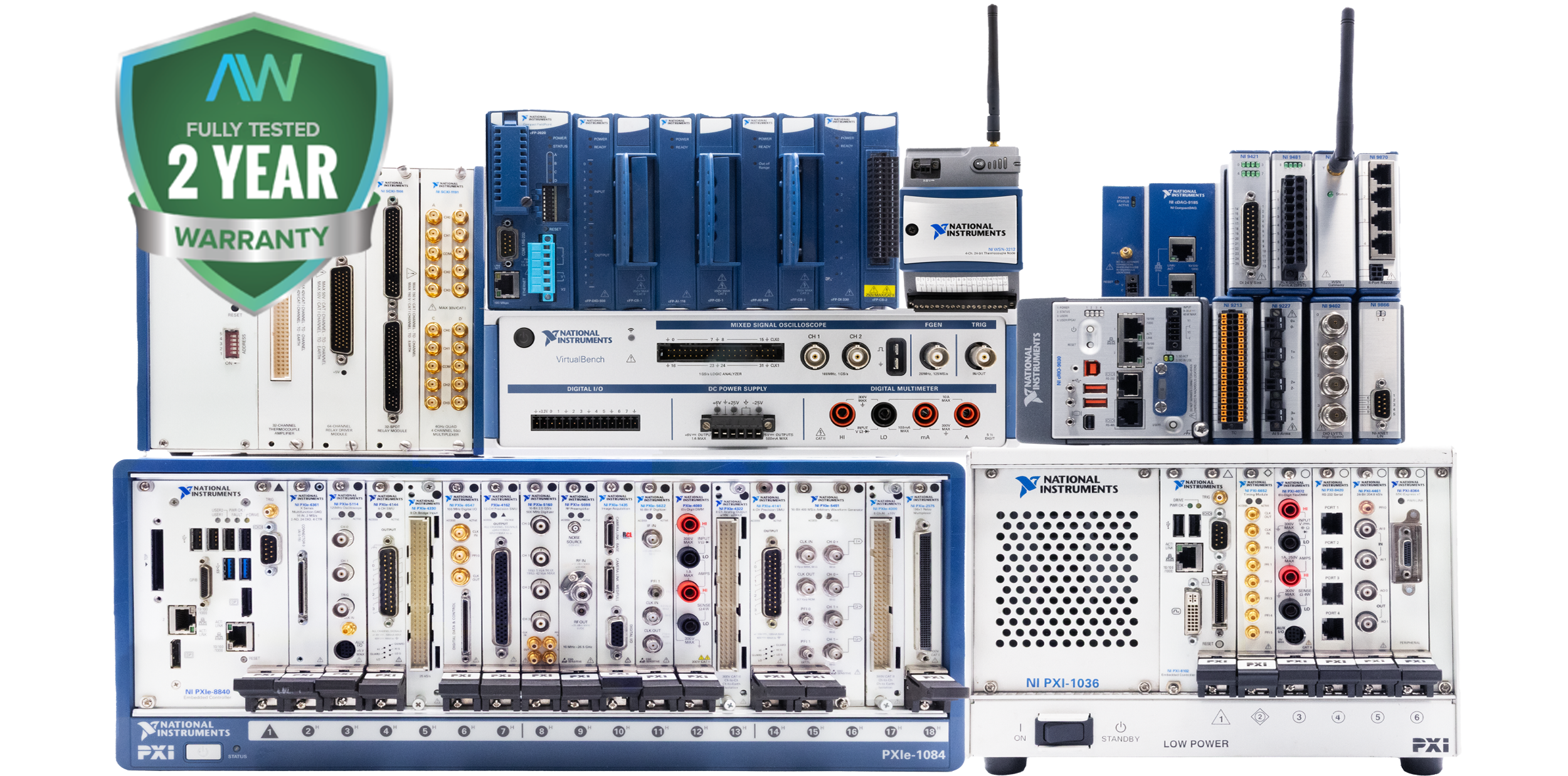Anonymous Verified Buyer
" Very responsive and helpful, competitive pricing. Good source! "
July 2025
PXIe-4080, 6.5 Digit Resolution, AC or DC Coupled, PXI Digital Multimeter
Rated 4.7/5 | 7 ratings
Actual item may vary if no part number is provided on quote request.




✔ 2 Year Warranty Included
✔ Free Ground Shipping
✔ NIST Calibration Available
National Instruments PXIe-4080 PXI Digital Multimeter
The National Instruments PXIe-4080 (Part Number: 783129-01) is a 6.5-Digit Onboard 1.8 MS/s Digital Multimeter. This high-performance PXI Digital Multimeter provides the measurement capabilities found in a high-resolution DMM and a digitizer, which are two common test instruments. As a DMM, the NI PXIe‑4080 delivers accurate AC/DC voltage that ranges from ±100 mV to ±300 V, as well as AC/DC current that ranges from ±20 mA to ±1 A. In addition, the DMM offers 2‑ or 4‑wire resistance, frequency/period measurements, and diode tests. In the high-voltage, isolated digitizer mode, the PXIe‑4080 can acquire waveforms at maximum sample rates of 1.8 MS per second.
The NI PXIe‑4080 has an input impedance of 1 MΩ ± 2% in parallel with 150 pF, maximum DC voltage component of 250 V, and common mode rejection ratio (CMRR) >70 dB (DC to 60 Hz). This Digital Multimeter has a frequency range from 15 Hz to 500 KHz and period measurement range from 2 µs to 66.67 ms. The device has a current mode fuse rating T 1 A 400 V, time-lag user-replaceable Minimum interrupt rating: 500 A Littelfuse 0477001.MXP. The power consumption of the device is less than 9 W from the PXI Express backplane. It consumes a maximum of 0.55 A from both a +12 V load and a + 3.3 V load.
The device operates using the NI-DMM driver software which is compatible with software packages/application development environments (ADEs) such as LabVIEW, LabWindows/CVI, ANSI C or Visual Basic. The device hardware can be configured using the Measurement & Automation Explorer (MAX) tool.
The PXIe-4080 has an ambient temperature range of 0.0 C to 55 0 C and a relative humidity range of 10% to 90% (noncondensing) in an operating environment. The storage ambient temperature range is -40 °C to 70 °C and the maximum altitude is 2,000 m (at 25 °C ambient temperature). The device weighs 12 oz., and measures 8.5 x 0.8 x 5.1 in. in dimensions. The PXIe-4080 has a recommended warm-up time of 60 minutes.
| Model | PXIe-4080 |
|---|---|
| Part Number | 783129-01 |
| Manufacturer | National Instruments |
| Type | PXI Digital Multimeter |
| Digits of Resolution | 6.5 |
| Maximum Sample Rate | 1.8 MS/s |
| Frequency Range | 15 Hz to 500 kHz |
| Input Coupling | AC or DC |
| Operating Temperature Range | 0 °C to 55 °C |
| Dimensions | 8.5 x 0.8 x 5.1 in. |
| Weight | 12 oz. |
| Warranty | Three Year Warranty |
| PXIe-4080 Manual | User Manual and Maintenance Manual Available for Download |
| Price | Contact a sales representative for a quote. |
Associated part numbers for PXIe-4080:
National Instruments PXIe-4080 Frequently Asked Questions
Question: What is the basic DC voltage accuracy of the PXIe-4080?
Answer: The basic DC voltage accuracy of the PXIe-4080 is 25 ppm.
Question: What is the DC current range of the NI PXIe-4080?
Answer: The DC current range of the NI PXIe-4080 is -1 A to 1 A.
Question: What is the PXIe-4080 driver called?
Answer: The PXIe-4080 driver is NI-DMM.
Question: What steps should I take if my NI PXIe-4080 DMM fails the self-test?
Answer: If the NI PXIe-4080 DMM fails the self-test, first try re-starting the device. Then, launch MAX and attempt the self-test again. Turn off the chassis and install the module in another slot. Next, power on the chassis and perform the self-test again.
MAINTAIN-FORCED-AIR-COOLING-NOTE-TO-USERS.PDF
NI-PXIE-4080-4081-4082-GETTING-STARTED-GUIDE.PDF
PXIE-4080-4081-4082-LETTER-OF-VOLATILITY.PDF
OS Compatibility: …
Delivery:
No hassle return policy.
Dedicated customer service team.
Receive Price & Availability Today!
Ask About Our Tiered Calibration Levels
Option & Modules:
Confirm Your Requirements or Versions
Cost & Lead Time Available Upon Request for Service
Repair Evaluation: $150
Common Typos:
